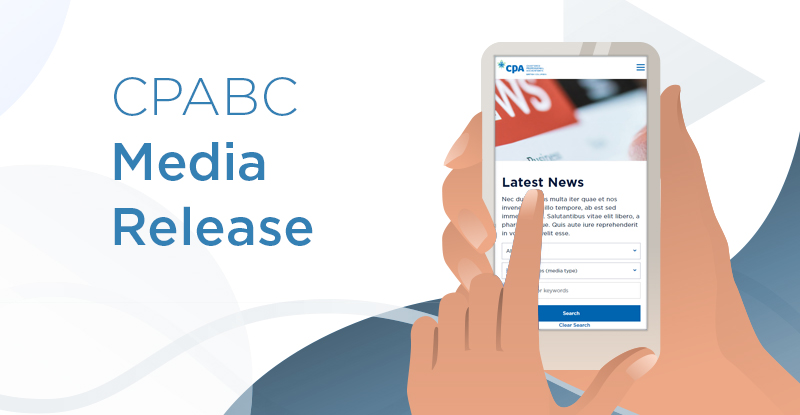
As CPABC’s senior advisor, public interest, Jessica McKeachie leads the development of public interest policy. This includes overseeing anti-money laundering and anti-corruption initiatives. Here she shares some of the findings of the Cullen Commission and describes the implications for the accounting profession.
Canada has an AAA credit rating, is a G7 country, and has a modernized system of trade—all of which make it very attractive to, and potentially lucrative for, money launderers from around the world. Here in BC, news outlets began reporting on suspected money laundering in local casinos several years ago, and this media coverage helped catalyze various government anti-money laundering (AML) initiatives, including the establishment of the Commission of Inquiry into Money Laundering in British Columbia (the Cullen Commission), headed by BC Supreme Court Justice Austin F. Cullen, in 2019.1
“Money laundering is a significant problem deserving serious attention from government, law enforcement, and regulators. An enormous volume of illicit funds is laundered through the British Columbia economy every year, and that activity has a significant impact on the citizens of this province.”
— Cullen report (page 2)
When I first wrote about the Cullen Commission in February 2020,2 public hearings were imminent. By the time I was working on my second article in late November 2020,3 the hearings were in progress and CPABC and CPA Canada were poised to speak on behalf of the accounting profession.4
After over three years of work, which including hearing from 199 witnesses, analyzing more than 1,000 exhibits, and reviewing written submissions and commissioned research, the Cullen Commission released its final report on June 15, 2022. At over 1,800 pages and featuring 101 recommendations, the Commission of Inquiry into Money Laundering in British Columbia – Final Report (Cullen report) is both thorough and complex.
While the report focuses to a great extent on the gaming and real estate sectors, it also provides information and findings related to the international AML regime, financial institutions, law enforcement, and professional services.
Ultimately, Cullen concludes that the federal AML regime is not sufficiently effective at detecting, combatting, or prosecuting money laundering in BC. Accordingly, he recommends that the province take a significantly more direct role in combatting the problem. In particular, he recommends the creation of an independent legislative office focused exclusively on anti-money laundering, headed by a provincial AML Commissioner. The AML Commissioner’s overarching mandate would be to “oversee the provincial response to money laundering and report to the Legislature regularly.”5
The office would be expected to produce reports; conduct and support research; issue policy advice and recommendations; monitor and audit the performance of relevant provincial bodies; and lead co-operative efforts to address money laundering issues in British Columbia.6 It would be the first office of its kind in Canada as, until now, AML initiatives have been driven by the federal government.
In addition, Cullen recommends creating a dedicated provincial anti-money laundering unit within the Combined Forces Special Enforcement Unit of British Columbia (BC’s integrated anti-gang police agency).7 The purpose of this intelligence and investigation unit would be to attempt to fill the gaps identified in the report and develop the expertise needed to investigate and prosecute money laundering activities.
Identifying the risks for the accounting profession
Cullen finds that while specific evidence as to the precise nature and extent of accountants’ involvement in money laundering is lacking, accountants—both regulated (CPAs) and unregulated—risk being used to facilitate money laundering because of the nature of their work.
Due to the limited evidence regarding accountants’ involvement in money laundering activities, Cullen relies heavily on the Financial Action Task Force’s 2019 report, Risk-Based Approach for the Accounting Profession8 to identify areas of potential risk for the accounting profession. Here are three of the risk areas identified in the Cullen report:
Providing financial and tax advice
Cullen notes that those seeking to launder money work very hard to minimize potential scrutiny and will often seek the advice of professionals, including accountants, to minimize their risk of incurring an audit or other reviews by tax and other financial authorities. Therefore, there is a risk of money laundering when providing advice, even though the federal AML regime focuses primarily on transactions. As stated in the report: “In providing advice, accountants clearly gain knowledge about a client’s financial affairs and are well placed to observe suspicious circumstances.”9
Providing bookkeeping services
Noting that criminals seeking to launder money are attracted to the legitimacy of accounting professionals, Cullen shares several international examples in the report, as provided by expert witnesses during the hearings.
Among them is the case of a bookkeeper who regularly deposited large amounts of money in the bank on behalf of two garage owners: “The bank reported the activity to the financial intelligence unit. It turned out that the garage owners were involved in a wholesale cocaine business and mixed their illegitimate funds with the garage’s profits. The bookkeeper maintained that it was not his job to notice discrepancies in the books, one of which was the fact that the garage would have had to be open six days a week and operating at full capacity to even approach the profits it was reporting.”10
Performing financial transactions
Another area of risk identified in the report is the performance of financial transactions. The risk in this area is already well known—it’s the primary area of focus for the Canadian AML regime.
Specifically, the triggering activities for accountants under the Proceeds of Crime (Money Laundering) and Terrorist Financing Act include performing or providing instructions with respect to the receipt or payment of funds or virtual currency or with respect to the transfer of funds, virtual currency, or securities by any means.11
Addressing the risks
The provincial government has indicated that it is reviewing the report, but it has not provided a timeline for action on any of the recommendations. We understand the federal government is also reviewing the report. Although it was beyond the purview of the Cullen Commission to make direct recommendations regarding federal policies, programs, or legislation, Cullen does recommend that the provincial government work with its federal counterpart to address the identified risks and deficiencies.
When looking at the accounting sector, Cullen acknowledges that CPAs in BC are extensively regulated. He also points out that two-thirds of accountants in BC are not regulated and says this lack of regulation poses a risk to British Columbians. Further, and as noted earlier, he also finds the federal AML regime to be lacking and says provincial regulators, including CPABC, need to enhance their AML efforts accordingly.
In addition, Cullen makes 13 recommendations related to the accounting sector, 10 of which are directed at CPABC. We’re currently looking to these recommendations for direction as we continue in our efforts to mitigate money laundering risks in this province and protect the public.
For a more detailed summary of Cullen’s findings, read “How the Cullen Report Is Attempting to Clean House,” written by John Lorinc for Pivot magazine.
Next steps
CPABC has established a working group to carefully review, assess, and, where appropriate, respond to and act on the recommendations in the Cullen report. This working group will also focus on ways to minimize the risks identified in the report. We’ll keep you posted on developments.
In the meantime, you can take action on an individual level by referring to CPA Canada’s Guide to Comply with Canada’s Anti-Money Laundering and Anti-Terrorist Financing (AML/ATF) Legislation, which was released in March 2022.12 In addition to providing more information on risk areas, the guide will help you minimize your personal risks regarding money laundering and ensure that you meet any potential AML requirements. You can also find relevant courses on CPABC's PD website and a variety of AML resources on CPABC's AML webpage and CPA Canada's website.
It’s vital to stay informed, because CPAs will continue to have an important role to play in combatting money laundering as the AML landscape evolves over the coming months and years.
Visit CPABC's anti-money laundering page, as well as related articles and submissions from the CPA profession.
Jessica McKeachie is CPABC's senior advisor, public interest. This article was originally published in the November/December 2022 issue of CPABC in Focus.
1 See "Commission of Inquiry into Money Laundering in British Columbia"
2 Jessica McKeachie, “The Fight Against Money Laundering,” CPABC in Focus, March/April 2020 (34-36).
3 McKeachie, “The Fight Continues: An update on anti-money-laundering initiatives,” CPABC in Focus, January/February 2021 (36-38).
4 CPABC representatives appeared before the Cullen Commission on January 12, 2021. Representatives of CPA Canada appeared before the commission the following day.
5 Province of British Columbia, Commission of Inquiry into Money Laundering in British Columbia – Final Report, 2022, (4).
6 Ibid (5).
7 Ibid (7).
8 Financial Action Task Force (2019), Risk-Based Approach for the Accounting Profession, Paris, France, 2019. The FATF is a global money laundering and terrorist financing watchdog.
9 Cullen report (1,263).
10 Ibid (1,266).
11 Minister of Justice, Proceeds of Crime (Money Laundering) and Terrorist Financing Regulations (SOR/2002-184), Section 47(1).
12 The guide can be downloaded from CPA Canada's website.



